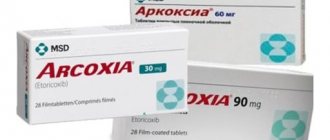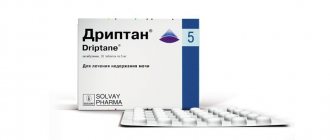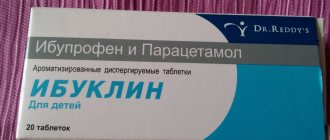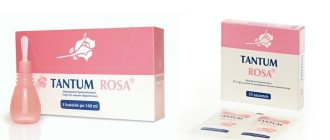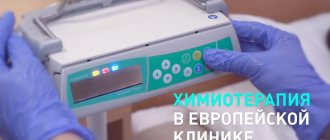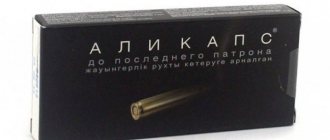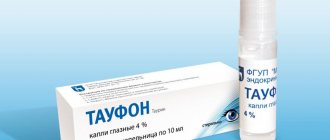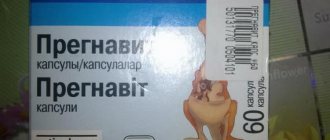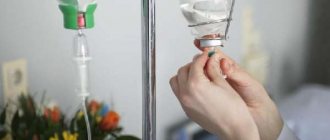Even if a person dependent on alcoholism realizes how harmful and dangerous the attraction to alcohol is, even if he really wants to give up alcohol, it will be very difficult to achieve such a goal on his own. It is even more difficult to restore a person who denies psychological and physiological dependence, since he simply does not want to be treated. Not only the addicted person suffers from such a situation, but also his loved ones. They strive to help the patient fully recover and quite often use the drug Colme for this purpose.
This is a fairly popular drug, the main advantage of which is its optimal effectiveness. No less important is the fact that the solution has no taste or smell, so it can be given to a dependent person without warning him about it. Despite such positive factors and the effectiveness of the product, there is no need to strive to blindly purchase the solution. It is important to consult a doctor and undergo a minimum examination, as there are certain contraindications.
pharmachologic effect
What is Colme? It is a medicine for alcoholism .
The active component inhibits the enzyme acetaldehydrogenase , which is actively involved in the metabolism of ethyl alcohol. Cyanamide increases the level of acetaldehyde , a metabolite of ethyl alcohol, which leads to the development of negative symptoms when alcohol enters the human body.
There is shortness of breath, rapid heartbeat, flushes of blood flow to the face, and nausea.
At the level of conditioned reflexes, an aversion to the smell and taste of alcohol-containing drinks is formed.
In comparison with Disulfiram, cyanamide does not have a hypotensive effect.
The sensitizing effect of the active component on ethyl alcohol appears after 45-60 minutes and lasts almost 12 hours.
Treating a patient without his knowledge
Many users are interested in the question of whether or not it is possible to add medicine to a drinker without his knowledge and how to do it correctly. This is an important question, because many alcoholics do not admit that they are pathologically ill and it is simply impossible to convince them of this; moreover, loved ones very often face open aggression. To prevent such troubles, relatives decide to treat the patient without his knowledge.
At the moment, there are no problems with this form of solving the issue, since there are a large number of drugs intended for this purpose. Colme is one of these drugs, since the side effects that may occur when combining it with alcohol do not pose a threat to life.
Despite this permissibility, higher results can only be achieved with conscious treatment. The drug will be most effective only if the person fully understands the extent of the need to abstain from alcohol.
The medicine can and should be used in the following situations:
- After coding, when you need to abstain from drinking alcohol.
- At the initial stage of development of an addiction, when cravings can be dealt with quite easily and simply.
- Treatment with folk remedies and other non-traditional methods. For example, if the chosen treatment raises some doubts.
If you use the drug consciously, as prescribed in the instructions, the chance of obtaining a positive result will be quite high. Using the drug in full accordance with the rules and in full compliance with the recommendations will not only allow you to get an effective positive result, but also avoid certain unpleasant consequences. The maximum that you can encounter while taking the medicine is slight weakness and drowsiness.
Side effects of Colme
The medicine is well tolerated. The following side effects are rarely reported:
- transient leukocytosis;
- increased drowsiness ;
- feeling tired;
- noise in ears;
- skin rashes.
The medicine is well tolerated if the patient follows the doctor's instructions and does not drink alcoholic beverages. How to neutralize side effects? Avoid alcohol completely. Reaction to ethyl alcohol:
- feeling of pronounced pulsation in the neck and head;
- skin hyperemia;
- nausea;
- chest pain;
- blurred visual perception;
- weakness;
- cardiopalmus;
- increased sweating.
In severe cases, it develops:
- collapsed state;
- drop in blood pressure;
- vomit;
- depression of respiratory function.
The severity of adverse reactions depends on the amount of alcohol. In case of a pronounced clinical picture, it is recommended to prescribe antihistamines and take measures to maintain the functioning of the cardiovascular system and breathing.
It is recommended to discontinue Colme's medication.
Contraindications
Absolute:
- Kidney diseases with impaired kidney function;
- Diseases of the respiratory system;
- Severe liver diseases;
- Severe cardiovascular diseases;
- Pregnancy and lactation;
- Hypersensitivity to the drug.
In the following cases, Colme should be used with caution:
- Epilepsy;
- Diabetes;
- Hyperthyroidism;
- Kidney diseases;
- Diseases of the cardiovascular system.
Colme, instructions for use (Method and dosage)
Drops for alcoholism can be prescribed only after a thorough examination of the patient. The attending doctor must warn the patient about the development of possible complications and consequences.
Instructions for Colma
According to an individual regimen, the drug is taken daily at 36-75 mg (twice a day, 12-25 drops). Drops are dosed as follows: after opening, the contents of the ampoule are poured into a bottle located in a cardboard package. You must put a special dropper on the bottle. If long-term storage is necessary, close the bottle tightly.
Instructions for use Colme Light
5 ml (teaspoon) three times a day with meals.
How to take the drops? Every day for 1 month.
Cost of the drug
If you have decided to order an anti-addiction drug, you should familiarize yourself with the approximate price rates for it. The cost directly depends on the form in which the drug was released. Currently on sale you can find the following forms and types of medication:
- Syrup in bottles of 100 ml. One package contains 4 bottles. The price of this form is 850-900 rubles.
- Colme drops are sold in ampoules of 15 ml. This form of the drug is less concentrated. Each milliliter contains about 60 mg of cyanamide. One package contains only 4 ampoules. The cost of this form of the drug is 1100-1200 rubles.
- The tablet form is now quite difficult to find. The reason is that after the appearance of syrup and drops, which were so convenient to use, tablet forms ceased to be in demand.
The drug is not purchased in regular pharmacies, but exclusively on the manufacturer’s official website. Finding it is not difficult, you just need to enter the corresponding name in the search bar.
After going to the portal, you will need to fill out a special form and place an order.
Despite the relative ease of purchasing the drug, you should only buy it on the recommendation of a doctor. Like any chemical drug, there are certain contraindications.
Before undergoing a course of treatment, you will need to visit a doctor and undergo at least a minimal examination. If you plan to treat a person without his knowledge, you will need to come up with some reason and make sure that he passes the necessary tests.
Interaction
The anti-alcohol drug Colme is incompatible with medications of the aldehyde group ( chloral and paraldehyde ).
The mandatory time interval between the use of Colme and Disulfiram is 10 days.
Medicines that can worsen your reaction to alcohol:
- Phenytoin;
- Isoniazid;
- Metronidazole.
Where to buy the drug?
Unfortunately, in the Russian Federation, a considerable number of people of different ages suffer from alcohol addiction. This problem affects not only the patients themselves, but also their loved ones. The drug can be purchased on the official website. Here there is optimal ease of operation and efficiency in processing incoming orders. It is enough to place an order and in a few days the drug will be delivered to your address. This is the best opportunity to start effective treatment as quickly as possible.
Colma must be purchased exclusively on the official website. This is the only way to be sure that the treatment process will be carried out exclusively with the original medicine and positive results will be obtained.
After purchasing the medicine, you will need to organize its proper storage. The temperature should not exceed 25 degrees and it is advisable to ensure that children do not have access to the storage area. If these conditions are met, the product can be stored for two years from the date of manufacture. Having purchased this medicine, many people who had suffered from alcoholism for a long time were able to quickly overcome their harmful cravings and returned to normal life.
Colma's analogs
Level 4 ATC code matches:
Antaxon
Metadoxyl
Antabuse
Vivitrol
Naltrexone
Medichronal
Disulfiram
Teturam
Proprothene-100
Lidevin
Esperal
Drug substitutes based on pharmacological effect:
- Lidevin;
- ProProTen-100.
Structural analogues have not been developed.
Relief of severe symptoms
In reviews of narcologists, the body’s reaction to “Kolme” is called acute if the whole bunch of negative symptoms continues to torment the patient an hour and a half after drinking alcohol. If the patient’s situation is aggravated by such signs as convulsions, asphyxia, or a sharp increase in blood pressure, the doctor interrupts the procedure regardless of the time it is continued.
Depending on the symptoms, the patient receives the following assistance:
- If the respiratory rhythm is disturbed and the heartbeat increases, camphor is administered subcutaneously or Ephedrine intramuscularly.
- For myocardial pain, sublingual nitroglycerin or Corvalol and Validol are used in any form.
- If blood pressure drops below 70 to 50, Mezaton is administered intravenously.
- For cramps, magnesium sulfate is injected into the gluteal muscle.
- In case of vomiting, atropine 0.1% is administered subcutaneously.
In case of any type of deterioration of health outside the norms acceptable for treatment, immediately after emergency procedures, the patient is administered vitamin C with glucose intravenously.
Reviews about Colma (opinion of doctors and patients)
The medicine is widely used in the treatment of alcohol dependence. Reviews of Colme drops are mostly positive. Relatives of patients write that they gave drops for alcoholism without warning their addicted relatives about it. And after some time, they noted a complete refusal to take alcohol-containing drinks against the background of a significant deterioration in well-being after taking even small doses of ethyl alcohol.
Treatment of alcoholism is complex, and in most cases it is possible if the patient is motivated and really wants to get rid of the bad habit.
Reviews about Colma Light are positive. Reviews from doctors about the drug Colme Light confirm the effectiveness of the drug in the treatment of alcohol dependence.
The main positive aspects of using the drug
A positive characteristic of this treatment for alcoholism is that it obtains a stable and fairly long-lasting positive effect. Colme for alcoholism, reviews of which can be found on the Internet for the most part are positive, has proven itself to be one of the most effective and efficient medicines for various forms of drunkenness. Many users of Colme note the following benefits:
- After the first dosage taken, a positive result is already noted;
- Convenient reception option;
- You can give medicine without notifying the patient;
- Relatively short-term use is quite enough to completely get rid of cravings;
- If you follow the instructions of your treating narcologist and carefully study the attached annotation, you can undergo treatment and lead a normal life, gradually getting rid of any adverse effects of alcohol on your organs;
- The drug is allowed to be used as a prevention of relapse of alcohol dependence, relapse;
- The syrup and more convenient drops do not differ in smell and taste from ordinary water, and the drug is completely colorless. This is what allows it to be used without the patient’s knowledge.
Very often, after completing the course and giving up vodka, patients experience a restoration of health - liver function resumes, general brain activity is completely normalized, and working capacity returns.
During pregnancy
The use of the drug during pregnancy can lead to unpredictable consequences for the mother and fetus. The use of the medication in any trimester of pregnancy is strictly prohibited. The toxic components of the drug can enter the child’s body through breast milk, so breastfeeding is an absolute contraindication to drug therapy. Treatment during lactation is possible when the baby is switched to artificial nutrition. Breastfeeding can be resumed after the medication has been completely removed from the woman’s body.
special instructions
Colme drops should be used to solve the problem of alcoholism only with the consent of the patient and under the supervision of a specialist. During treatment, the possibility of a reaction to ethanol contained in foods or medications should be considered. Therapy is allowed to begin 12 hours after the last intake of strong drinks. When prescribing the drug to patients with certain pathologies, caution should be exercised, as there may be a health risk. With long-term use of drops, thyroid function should be monitored.
Buy Colma drops orally 60 mg/ml 15 ml No. 4 in pharmacies
Instructions for use Colme Dosage forms drops 60 mg/ml 15 ml Group Drugs for the treatment of alcoholism International nonproprietary name No INN. Composition Active substance: cyanamide 0.9 g (1 drop 3 mg). Manufacturers Laboratory Vitoria S.A. (Portugal) Pharmacological action The action of cyanamide is based on the blockade of acetaldehyde dehydrogenase, which is involved in the metabolism of ethyl alcohol. This leads to an increase in the concentration of ethyl alcohol metabolite - acetaldehyde, which causes negative sensations (flushing, nausea, tachycardia, shortness of breath, etc.), which make drinking alcohol extremely unpleasant after taking the drug. This leads to a conditioned reflex aversion to the taste and smell of alcoholic beverages. The sensitizing effect of cyanamide on alcohol appears earlier (after about 45-60 minutes) and lasts shorter (about 12 hours) than the effect of disulfiram. Also, unlike disulfiram, cyanamide does not have a hypotonic effect. Side effects The drug is usually well tolerated if alcohol is not consumed. Sometimes fatigue, drowsiness, skin rashes, tinnitus, and transient leukocytosis are possible. Indications for use : Used to treat patients with chronic alcoholism and prevent relapse. Contraindications Severe heart disease, respiratory tract and kidney diseases with decreased function, severe liver disease, pregnancy, breastfeeding, increased individual sensitivity to the drug. Method of administration and dosage Treatment is prescribed after a thorough examination of the patient and warning about the consequences and complications. The drug is taken orally at 36-75 mg (12-25 drops 2 times a day with an interval of twelve hours) according to an individual regimen. To dose, break the ampoule containing the drug solution, pour the contents into the bottle included in the package, and place a dropper on the bottle. The bottle must be tightly closed. Overdose Symptoms are not described, increased side effects are possible. If too large doses of the drug are taken, it is recommended to lavage the stomach and prescribe symptomatic treatment aimed at maintaining the functions of the liver, breathing and cardiovascular system; monitoring the hematocrit and, if necessary, blood transfusions are also necessary. Reaction to alcohol. When taken simultaneously with alcohol, the following symptoms appear: severe hyperemia of the skin, “pulsation” in the head and neck, nausea, tachycardia, difficulty breathing, weakness, blurred vision, profuse sweating, chest pain. In the most severe cases - vomiting, decreased blood pressure, respiratory depression, collapsing state. The nature and severity of symptoms depend on the amount of alcohol and drug taken. In severe cases, it is necessary to carry out symptomatic therapy aimed at maintaining the functions of the respiratory and cardiovascular systems, and intravenous infusion of antihypertensive drugs. Interaction Avoid prescribing the drug together with metronidazole, isoniazid, phenotoin and other aldehyde dehydrogenase inhibitors, which may increase the reaction with alcohol. After taking disulfiram, before prescribing the drug, there should be a break of at least 10 days. The drug Kolme is not compatible with drugs of the aldehyde group (paraldehyde and chloral products). Special instructions The drug should be used only under the supervision of a physician and with the knowledge of the patient. You may have a reaction to alcohol contained in some medications and foods. Treatment can begin only after 12 hours have passed since the last drink. The drug should be used with caution in cases where a reaction to simultaneous use with alcohol may entail a risk to the patient’s health: hyperthyroidism, diabetes, epilepsy, cardiovascular diseases, kidney diseases. With long-term use, it is recommended to monitor thyroid function at least once every six months. Storage conditions List B. Store in a place protected from light, out of the reach of children at a temperature not exceeding 25 C. Dispensing procedure Sold by prescription Attention! The information presented in the directory is not
Need to know
Narcologists, when relatives of heavy drinkers contact them, always insist that the drug chosen for treatment be taken by the sick person consciously. For this purpose, in drug treatment hospitals and dispensaries there is always a staff of psychologists, whose task is to awaken in an alcoholic a craving for an antisocial lifestyle and to help the patient’s relatives, together with him, overcome the difficult barrier of adaptation.
A person who takes the drug secretly and does not know what awaits him in the event of a relapse can, using the cunning characteristic of addicted people, escape from the supervision of medical staff or relatives and drink alcohol in quantities unacceptable when taking Colme. If, in addition, the patient is hypersensitive to the components of the drug, the consequences can be unpredictable. That is why so much effort by motivator specialists goes into conveying to the sick person’s consciousness the impossibility of continuing life in the direction he has laid out for himself. The proposed treatment is presented to him not as outside help, but as the only outcome from a situation leading to inevitable death.
In exceptional cases, when it is impossible to see a doctor or the patient categorically refuses to contact people in white coats, the method of secretly adding Colme to drinks or liquid foods is considered justified. Analyzing the statistics of reviews of drugs for alcoholism - “Kolma”, “Teturam”, “Metadoxil” and others - one can understand that their mechanism of action is approximately the same and the methods of relieving alcohol dependence through these drugs are almost the same. However, most time-tested medications are almost impossible to use without the knowledge of the patient. This is the main advantage of Kolme, the instructions and reviews of which clearly indicate that the patient will not be able to recognize a change in taste even in a glass of plain water.
This procedure, carried out without the supervision of a narcologist and a concomitant examination of the alcoholic’s health status, imposes a certain responsibility on the patient’s relatives. It is recommended to consult with a specialist at least at the stage of visible improvements - then the internal protest of the dependent person will be significantly dulled and it will be much easier to convey the necessary information to him.
